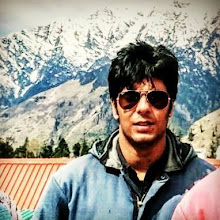
So this week I came across
Wakefield, and naturally seeing the face of Bryan Cranston, this couldn't be put aside. Let's read on to know more.
Seriously though, Bryan Cranston. The best. Period.
The Story - Directed by Robin Swicord, the
screenwriter for The Curious Case of Benjamin Button, the movie revolves around
Howard Wakefield, a successful lawyer in New York City living the standard
family life with his wife Diana (Jennifer Garner) and two daughters, out in the
suburbs. He is accustomed to his clockwork life of working, eating, sleeping
and having a strained marital life, and is visibly frustrated. One day, while
returning home, Howard trying to chase a raccoon away, follows it into his garage’s
attic in the backyard. He discovers that he has a nearly perfect view into the
affairs of his house from the attic window, and stays to see how his wife
behaves in retaliation to his absence from dinner. One thing leads to the
other, and Howard stays in the same attic for several months, leading his
family to believe he has left them, and observes from the window how they go
about their life and how much they’re affected by his absence.
The entire film, and every
character portrait we come across, is from the view of the protagonist Howard
Wakefield. He gives an account of the circumstances in which he met and married
his wife, makes shoddy profiles of every person coming to his house post his disappearance.
The interesting thing is, despite
his being the protagonist and the pivot of the story, for nearly half the
movie, Wakefield comes off as a selfish, shallow, manipulative man who despite
his own share of bad deeds, believes himself to be the victim of the
relationships he’s bound himself in. For a movie balancing itself on the
narration and point-of-view of one single character, it is remarkable how they
achieve the feat.
I loved this movie because of the
unique way its narrative is handled, with every scene of the movie being a
flashback into a memory of Howard, handpicked to suit his side of the story yet
subconsciously painting a detailed picture of Howard’s personality in the
process. There is a steady revelation of his person - bad, terrible, even downright
despicable, but sometimes surprisingly enlightened and compassionate -
with every step of his story, one that he himself isn’t aware to be affecting. None
of the story as narrated by him has a particularly linear structure, and he
tells it as it comes to him, ranting away as if he’s complaining directly to
the viewer without even peeking into the fourth wall.
The only other significant known actor in the movie is Jennifer Garner, playing Howard's wife Diana. No specific judgment upon her, and nothing out of the usual good performance, but the character should have gone to an older actress, or at least one who'd look the same age as Cranston.
Wakefield, all in all, is a
bitter-sweet (bitter mostly) drama about the mid-life crisis and the identity
crisis that any family man could and must face in today’s frantic and seemingly
uncaring world, and despite the dryness of its concept, brimming with
significant, curious emotion, accommodated delicately with the complexities of
its protagonist.
They could have done better with
the epilogue, where they chose to end on an ambiguous note, but hey, is anybody perfect?




0 comments:
Post a Comment